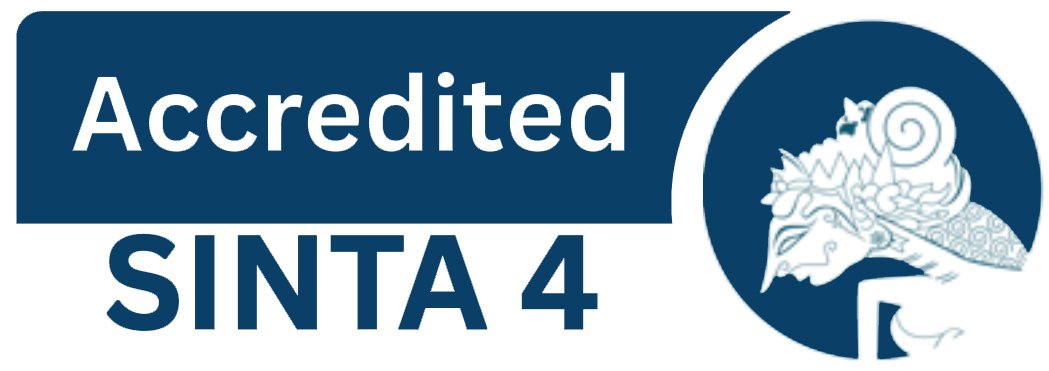PENGOLAHAN LIMBAH ORGANIK MENJADI MAKANAN LOKAL MELALUI PERKULIAHAN BIOTEKNOLOGI BERBASIS PROYEK TERHADAP LITERASI INKUIRI MAHASISWA PGSD
DOI:
https://doi.org/10.22460/collase.v5i1.10051Keywords:
Limbah Organik, PjBL, Literasi InkuiriAbstract
Kepedulian masyarakat dalam mengelola limbah lingkungan sangat rendah. Hal ini terlihat dari peningkatan penumpukan sampah di beberapa TPA lingkungan kabupaten Cirebon ini. Untuk mewujudkan sikap literate dalam menghadapi permasalahan limbah lingkungan, dapat dimulai dari metode perkuliahan berbasis proyek yang secara aktif menggunakan lingkungan sekitar menjadi sumber belajar, serta dapat dimanfaatkan secara langsung oleh masyarakat. Tujuan dari penelitian ini adalah mewujudkan kemampuan literasi inkuiri dalam mengolah limbah organik menjadi sebuah produk makanan lokal melalui perkuliahan Bioteknologi berbasis proyek di kalangan mahasiswa PGSD. Penelitian menggunakan metode deskriptif eksploratif, data di analisis secara mix methods, subjek perlakuan pada mahasiswa semester I PGSD Unswagati Cirebon. Pengumpulan data melalui observasi partisipan, kuisioner, uji organoleptik, serta studi dokumentasi. Diperoleh temuan bahwa melalui sintaks perkuliahan berbasis proyek secara langsung menyelesaikan permasalahan limbah organik di lingkungan sekitar, yang  dapat mewujudkan beberapa aspek kemampuan literasi inkuiri dalam perkuliahan, serta menghasilkan beberapa produk makanan lokal dari pengolahan limbah organik. Implikasi dari penelitian ini upaya pengelolaan limbah organik dilingkungan sekitar menjadi makanan lokal yang memiliki nilai nutrisi tinggi serta bernilai ekonomis yang sangat bermanfaat bagi masyarakat.
Â
Public awareness in managing environmental waste is very low. This can be seen from the increase in the accumulation of waste in several TPAs in the Cirebon district. To realize a literate attitude in dealing with environmental waste problems, it can be started from the project-based lecture method that actively uses the surrounding environment as a learning resource, and can be used directly by the community. The purpose of this research is to realize inquiry literacy skills in processing organic waste into a local food product through project-based Biotechnology lectures among PGSD students. The study used an exploratory descriptive method, the data were analyzed using mixed methods, the subject of treatment was the first semester students of PGSD Unswagati Cirebon. Data collection throughparticipant observation, questionnaires, organoleptic tests, and documentation studies. It was found that the project-based lecture syntax directly solves the problem of organic waste in the surrounding environment, which can realize several aspects of inquiry literacy skills in lectures, as well as produce some local food products from organic waste processing. The implication of this research is the effort to manage organic waste in the surrounding environment into local food that has high nutritional value and economic value which is very beneficial for the community.
References
Klein, J.I., Santiago T., Sabrina H. K., Anna C., Linda C., Barbara R. (2009). Project-Based Learning: Inspiring Middle School Student to Engage in Deep and Active Learning. New York: NYC Departement of Education
Wijaya, L.S. (2012). Khasiat dan Manfaat Pisang. [Online]. Tersedia: http://bimaitumbojo.blogspot.com/2012/02/khasiat-dan-manfaat pisang.html. [10 Juli 2012]
Departemen Pendidikan Nasional. (2006). Standar Kompetensi Lulusan (SKL). Jakarta: Depdiknas
Frank, M. dan Barzilai, A. (2006) Project-Based Technology: Instructional Strategy for Developing Technological Literacy. Journal of Technology Education. Vol. 18, (1), 39-53.
Chin, C. dan Chia, L. (2005). Problem-Based Learning: Using Ill-Structured Problems in Biology Project Work. Jurnal Wiley InterScience. Wiley Periodicals, Inc. 90, 44-67.
Treacy, D.J., et al. (2011). Essay: Implementation of a Project-Based Molecular Biology Laboratory Emphasizing Protein Structure-Function Relationships in a Large Introductory Biology Laboratory Course. CBE-Life Sciences Education. 10, 18–24.
Wenning, C.J. (2007). Assessing Inquiry Skills as a Component of Scientific Literacy dan Scientific Inquiry Literacy Test (ScInqLiT). Journal of Physics Teacher Education Online. 4, (2), 21-24.
Rustaman, N.Y. (2005). Strategi Belajar Mengajar Biologi. Malang: UM Press.
Bellanca, James. (2012). Proyek Pembelajaran yang Diperkaya: Jalur Praktis Menuju Keterampilan Abad ke-21. Jakarta: Indeks.
Doppelt, Y. (2005b). Assessment of Project-Based Learning in a Mechatronics Context. Journal of Technology Education. 16, (2), 7-24.
Slameto. (2010). Belajar dan Faktor-Faktor yang Mempengaruhinya. Jakarta: Rineka Cipta
Subiantoro, A.W. (2012). Pentingnya Praktikum dalam Pembelajaran IPA. [Online].
Tersedia:http://staff.uny.ac.id/sites/default/files/tmp/PPM_PENTINGNYA%20PRAKTIKUM.pdf [5 Desember 2012].
OECD. (2007). PISA 2006: Science Competencies for Tomorrow’s World. Volume 1, Analysis. [Online]. Tersedia: http://www.oecd.org/unitedstates/ 39722597.pdf [5 Desember 2012].
Johnson, E.B. (2011). Contextual Teaching & Learning: Menjadikan Kegiatan Belajar-Mengajar Mengasyikkan dan Bermakna. Terjemahan. Bandung: Penerbit Kaifa.
Nurdiyanti, D., Utami, S.A, Bastian, N, dan Johan. (2017). Pemanfaatan Limbah Organik Pasar Sebagai Bahan Pupuk Kompos Untuk Penghijauan Di Lingkungan Masyarakat Kota Cirebon. The 5TH Urecol Proceeding UAD Yogyakarta. 5 (1): 204 – 214.
Mutma'innah. (2013). Pengaruh Pembelajaran Berbasis Proyek Dan Pembelajaran Praktikum Terhadap Literasi Inkuiri Ilmiah Dan Keterampilan Berpikir Kreatif Siswa Smp Pada Materi Sistem Pencernaan [Master thesis, Universitas Pendidikan Indonesia]. UPI Library Repository. http://repository.upi.edu/view/creators/Mutma=27innah=3A_=3A=3A.html.



